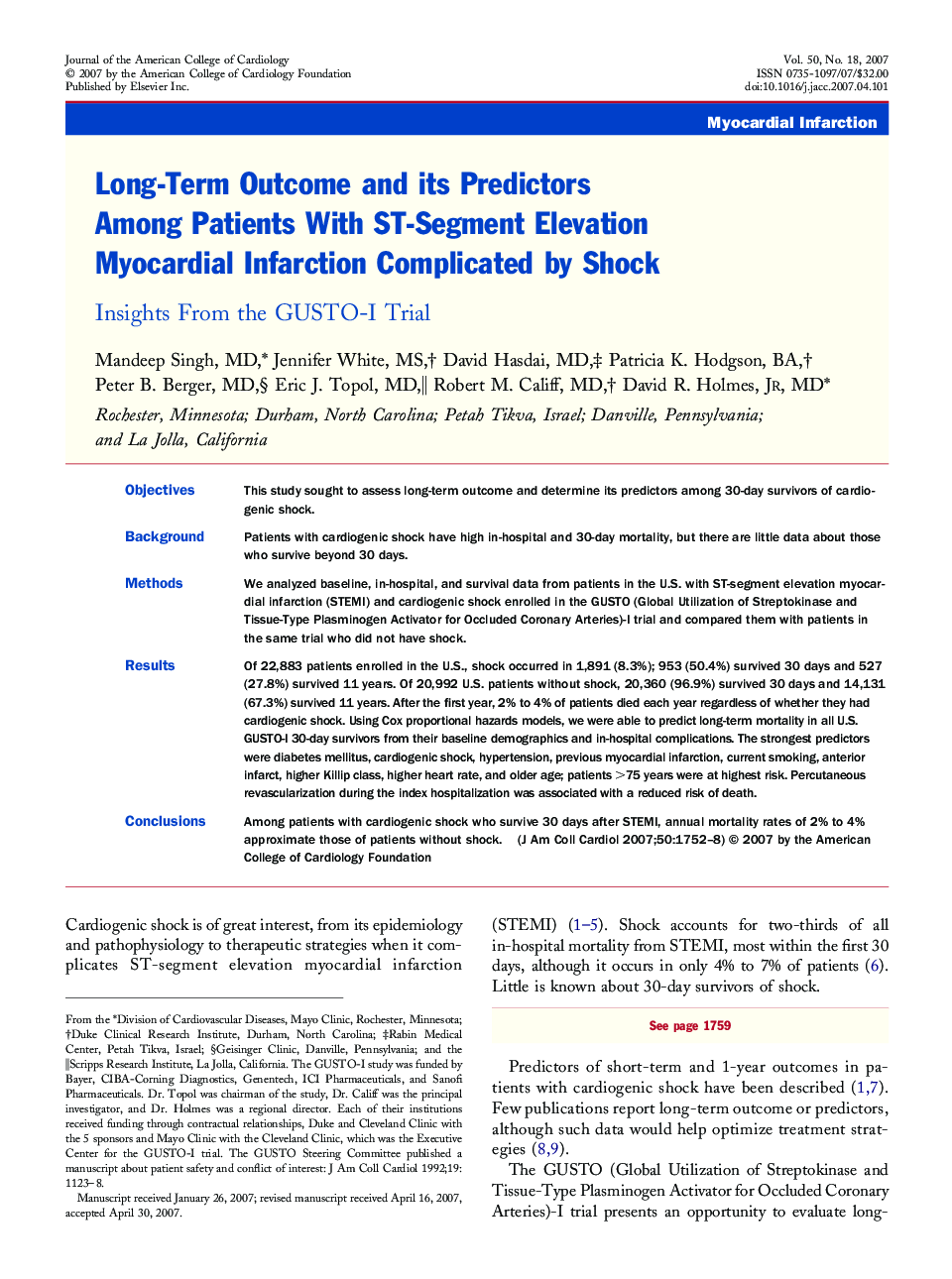| کد مقاله | کد نشریه | سال انتشار | مقاله انگلیسی | نسخه تمام متن |
|---|---|---|---|---|
| 2954468 | 1577450 | 2007 | 7 صفحه PDF | دانلود رایگان |

ObjectivesThis study sought to assess long-term outcome and determine its predictors among 30-day survivors of cardiogenic shock.BackgroundPatients with cardiogenic shock have high in-hospital and 30-day mortality, but there are little data about those who survive beyond 30 days.MethodsWe analyzed baseline, in-hospital, and survival data from patients in the U.S. with ST-segment elevation myocardial infarction (STEMI) and cardiogenic shock enrolled in the GUSTO (Global Utilization of Streptokinase and Tissue-Type Plasminogen Activator for Occluded Coronary Arteries)-I trial and compared them with patients in the same trial who did not have shock.ResultsOf 22,883 patients enrolled in the U.S., shock occurred in 1,891 (8.3%); 953 (50.4%) survived 30 days and 527 (27.8%) survived 11 years. Of 20,992 U.S. patients without shock, 20,360 (96.9%) survived 30 days and 14,131 (67.3%) survived 11 years. After the first year, 2% to 4% of patients died each year regardless of whether they had cardiogenic shock. Using Cox proportional hazards models, we were able to predict long-term mortality in all U.S. GUSTO-I 30-day survivors from their baseline demographics and in-hospital complications. The strongest predictors were diabetes mellitus, cardiogenic shock, hypertension, previous myocardial infarction, current smoking, anterior infarct, higher Killip class, higher heart rate, and older age; patients >75 years were at highest risk. Percutaneous revascularization during the index hospitalization was associated with a reduced risk of death.ConclusionsAmong patients with cardiogenic shock who survive 30 days after STEMI, annual mortality rates of 2% to 4% approximate those of patients without shock.
Journal: Journal of the American College of Cardiology - Volume 50, Issue 18, 30 October 2007, Pages 1752–1758